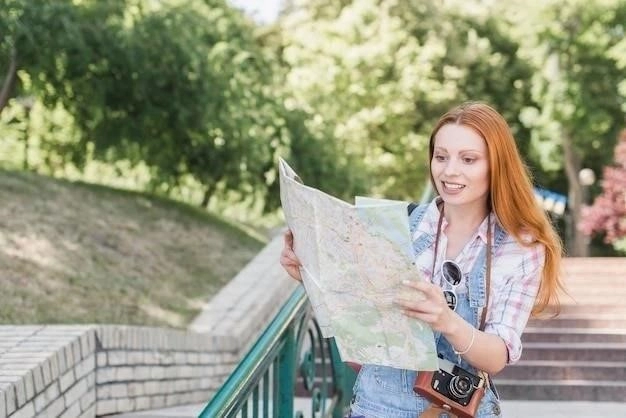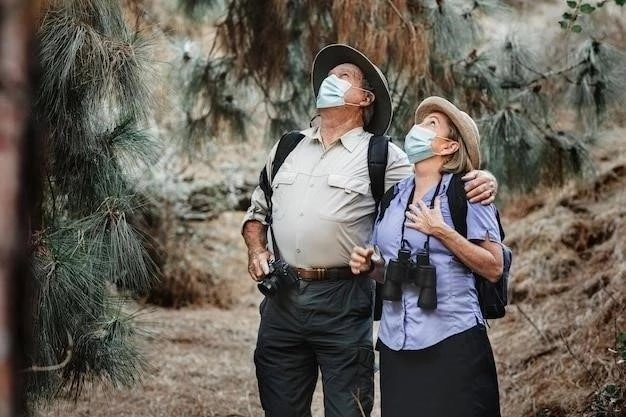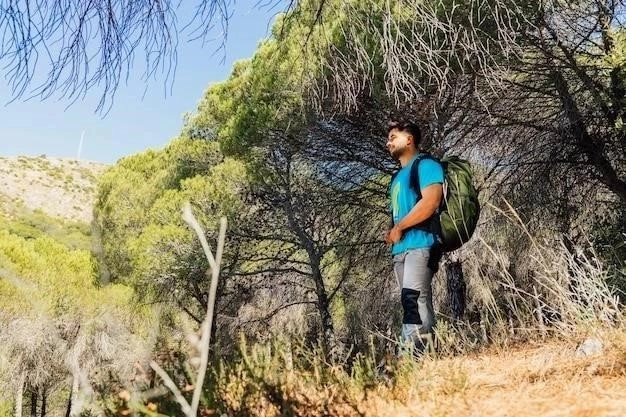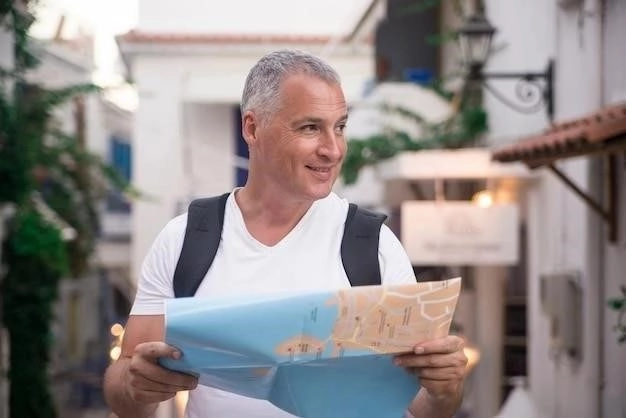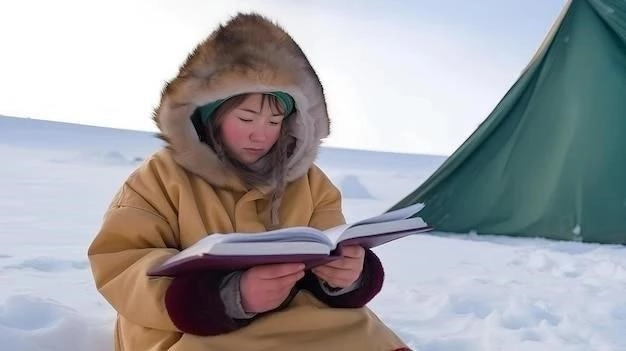Unlock the captivating allure of Kazakhstan, a Central Asian gem brimming with diverse landscapes, rich history, and vibrant culture. From the modern metropolis of Almaty to the sprawling steppes and towering mountains, our comprehensive guide equips you with essential insights for an unforgettable journey through this extraordinary land.
General Information
Embark on a journey to Kazakhstan, a transcontinental country bridging Eastern Europe and Central Asia. As the world’s largest landlocked nation and ninth largest overall, Kazakhstan boasts a rich tapestry of cultures, landscapes, and experiences.
Geography and Climate: Spanning a vast expanse of steppes, deserts, mountains, and forests, Kazakhstan experiences a continental climate. Summers (June to August) are typically warm and sunny, while winters (December to February) can be quite cold, particularly in the northern and central regions. Spring and autumn offer pleasant shoulder seasons for exploration.
Language: Kazakh, a Turkic language, holds official status alongside Russian. English proficiency is gradually increasing, particularly in urban centers and tourist areas, but learning a few basic Kazakh phrases will enhance your interactions and cultural immersion.
Currency: The official currency is the Kazakhstani tenge (KZT). Credit cards are widely accepted in larger cities and towns, but it’s advisable to carry some local currency for smaller establishments and transportation.
Time Zone: Kazakhstan observes two time zones: West Kazakhstan Time (UTC+5) and East Kazakhstan Time (UTC+6). Almaty and Astana, the two major cities, operate on East Kazakhstan Time.
Culture and Etiquette: Kazakh culture is renowned for its hospitality and traditions. Respect for elders is highly valued, and offering tea and snacks to guests is a common custom. When visiting religious sites, dress modestly and be mindful of local customs.
Visa Requirements: Visa regulations vary depending on your nationality. Citizens of numerous countries can enter Kazakhstan visa-free for a specified period, while others require obtaining a visa in advance. It is essential to consult with the nearest Kazakh embassy or consulate for the latest visa requirements pertaining to your citizenship.
Visas and Entry Requirements
Prior to your departure for Kazakhstan, it is imperative to ensure you possess the necessary documentation for entry. Visa requirements vary based on your nationality and the intended duration of your stay.
Visa-Free Regime: Citizens of numerous countries, including those within the European Union, the United States, Canada, Australia, and several others, are eligible for visa-free entry into Kazakhstan for a limited period, typically ranging from 15 to 90 days. It is crucial to verify the specific duration applicable to your nationality on the website of the Ministry of Foreign Affairs of the Republic of Kazakhstan or consult with the nearest Kazakh embassy or consulate.
Visa Application Process: If your nationality requires a visa to enter Kazakhstan, you must initiate the application process well in advance of your intended travel dates. Typically, this involves submitting an application form, a valid passport with at least six months of remaining validity, photographs adhering to specific requirements, proof of travel itinerary and accommodation, and, in some cases, a letter of invitation from a sponsoring individual or organization within Kazakhstan.
Registration Upon Arrival: Upon arrival in Kazakhstan, foreign nationals are required to register with the local migration authorities within five working days. This can usually be facilitated by your accommodation provider (hotel or guesthouse). Failure to comply with registration requirements may result in fines or difficulties when exiting the country.
COVID-19 Regulations: In light of the evolving global health landscape, it is essential to stay informed about the latest COVID-19 related entry requirements and restrictions. These may include presenting proof of vaccination, a negative PCR test result, or undergoing quarantine upon arrival. It is advisable to regularly check the official website of the Ministry of Healthcare of the Republic of Kazakhstan or contact the nearest Kazakh embassy or consulate for the most up-to-date information before your trip.
Safety and Security
Kazakhstan generally enjoys a reputation as a safe and welcoming destination for travelers. However, exercising a reasonable degree of caution and awareness of your surroundings is always advisable, as in any country.

Crime: While instances of violent crime against tourists are relatively rare, petty theft, such as pickpocketing, can occur, particularly in crowded areas like markets, bazaars, and public transportation. It’s prudent to safeguard your valuables, avoid displaying large sums of cash, and remain vigilant of your belongings.
Transportation Safety: Road conditions in Kazakhstan can vary significantly. While major highways are generally well-maintained, roads in rural areas may be in poorer condition. It’s advisable to exercise caution when driving, particularly at night, and be mindful of livestock or wildlife that may wander onto the roads. Public transportation within cities is generally safe and reliable.
Political Stability: Kazakhstan maintains a stable political environment. However, it’s always prudent to stay informed about any potential demonstrations or political gatherings, particularly in larger cities, and avoid large crowds or areas where tensions may arise.
Emergency Contacts: In case of an emergency, dial 112 for the unified emergency service number, which encompasses police, fire, and ambulance services. It’s recommended to store this number, along with the contact information for your embassy or consulate, in your phone and keep a physical copy readily accessible.
Local Laws and Customs: Familiarize yourself with basic Kazakh laws and customs to ensure a respectful and incident-free trip. Photography of government buildings and military installations is generally prohibited. Dress modestly when visiting religious sites, and be mindful of local etiquette, such as removing your shoes before entering private homes.
Health and Insurance

Ensuring your health and well-being is paramount when traveling to Kazakhstan. While the country generally maintains adequate healthcare facilities, particularly in urban centers, it’s crucial to take necessary precautions and have comprehensive travel insurance.
Travel Insurance: Obtaining comprehensive travel insurance before your trip is highly recommended. Ensure your policy covers medical expenses, including hospitalization, emergency medical evacuation, and repatriation, should the need arise. Additionally, coverage for trip cancellation, baggage loss, and other unforeseen circumstances can provide valuable peace of mind.
Vaccinations: Consult with your healthcare provider or a travel medicine specialist at least four to six weeks before your trip to Kazakhstan to discuss recommended vaccinations. Routine vaccinations, such as measles, mumps, rubella (MMR), diphtheria-tetanus-pertussis (DTaP), and polio, should be up to date. Additionally, depending on your itinerary and planned activities, vaccinations for hepatitis A and B, typhoid, and rabies may be advisable.
Food and Water Safety: Exercise caution when consuming food and beverages in Kazakhstan. Opt for bottled water and avoid consuming tap water unless it has been boiled or purified. Be wary of consuming food from street vendors, and ensure meat and poultry are cooked thoroughly.
Altitude Sickness: If your itinerary includes travel to mountainous regions, be aware of the potential for altitude sickness. Ascend gradually, stay hydrated, and consider consulting with your doctor about altitude sickness medication if necessary.
Medical Facilities: Medical facilities in major cities like Almaty and Astana are generally well-equipped, but standards may vary in more remote areas. Carry a basic first-aid kit with essential medications for common ailments. If you require prescription medication, ensure you have an ample supply and carry a copy of your prescription.
Getting There and Getting Around
Navigating your way to and within Kazakhstan offers a variety of options to suit different preferences and budgets. From international air travel to domestic flights and an expanding rail network, you’ll find a mode of transport to suit your itinerary.
By Air: Kazakhstan’s primary international gateways are Nursultan Nazarbayev International Airport (NQZ) in Astana, the capital, and Almaty International Airport (ALA) in the country’s largest city. Numerous international airlines connect Kazakhstan with major hubs across Europe, Asia, and the Middle East. Domestically, Air Astana and SCAT Airlines operate flights between major cities within the country.
By Train: Kazakhstan boasts an extensive railway network connecting major cities and towns. Traveling by train offers a scenic and comfortable way to explore the country, particularly for longer distances. The national railway company, Kazakhstan Temir Zholy (KTZ), operates modern trains with various classes of service, including sleeper compartments.
By Bus: Intercity bus services provide a cost-effective means of transport, particularly for shorter distances. Numerous bus companies operate routes between cities and towns, with varying levels of comfort and frequency.
Local Transportation: Within cities, options include buses, trolleybuses, and marshrutkas (minibuses). Taxis are readily available and generally affordable, but it’s advisable to negotiate the fare in advance or ensure the driver uses a meter.
Car Rental: Car rental is available in major cities, allowing for greater flexibility in exploring the country at your own pace. However, driving conditions and road quality can vary, so careful consideration of your route and driving experience is essential. An International Driving Permit (IDP) is required, alongside your valid driver’s license.
Accommodation
Kazakhstan offers a diverse range of accommodation options to suit every budget and travel style, from international hotel chains to locally run guesthouses and homestays.
Hotels: In major cities like Almaty and Astana, you’ll find a wide selection of international hotel chains offering comfortable and familiar amenities. Mid-range and budget-friendly hotels are also available, providing comfortable accommodations at more affordable price points.
Guesthouses and Homestays: For a more immersive cultural experience, consider staying in guesthouses or homestays. These options offer an opportunity to interact with local families and experience Kazakh hospitality firsthand. Guesthouses typically provide basic but comfortable accommodations, while homestays offer a room in a family’s home.
Apartments and Vacation Rentals: In recent years, short-term apartment rentals and vacation homes have become increasingly popular, particularly for families or groups traveling together. These options offer greater space and privacy, often with kitchens or kitchenettes for self-catering.
Yurts: For a unique and traditional Kazakh experience, consider spending a night or two in a yurt. These portable, circular dwellings are made of felt and wood and offer a glimpse into the nomadic heritage of the country. Yurt camps are often found in scenic rural areas, providing a chance to connect with nature.
Booking Tips: It’s generally advisable to book accommodations in advance, especially during peak tourist seasons or if you have specific preferences. Utilizing online booking platforms or consulting with a reputable travel agency can help you secure the best deals and ensure a comfortable stay.
Money and Costs

Understanding the currency, costs, and budgeting considerations in Kazakhstan will contribute to a smoother and more enjoyable travel experience. While costs have risen in recent years, Kazakhstan remains a relatively affordable destination, particularly when compared to Western European or North American destinations.

Currency: The official currency of Kazakhstan is the Kazakhstani tenge (KZT), denoted by the symbol “₸”. It’s advisable to exchange currency upon arrival at banks, exchange bureaus, or ATMs, which are widely available in cities and towns. Credit cards are generally accepted in larger establishments, hotels, and restaurants, but carrying some local currency for smaller purchases, transportation, and markets is recommended.
Daily Budget: Your daily budget in Kazakhstan will depend on your travel style and preferences. As a general guideline, budget travelers can expect to spend around $30-50 per day, covering basic accommodation, meals, transportation, and some sightseeing. Mid-range travelers can anticipate spending around $80-150 per day for more comfortable accommodation, dining, and activities. Luxury travelers should budget upwards of $200 per day for high-end accommodation, fine dining, and exclusive experiences.
Tipping: Tipping is not mandatory in Kazakhstan but is appreciated for good service. In restaurants, leaving a small tip of around 5-10% of the bill is customary. For taxis, rounding up the fare to the nearest hundred tenge is a common practice.
Bargaining: Bargaining is customary in markets and bazaars but less common in established shops or restaurants. Politely negotiate a price that seems fair to both parties. Remember that bargaining is a part of the cultural exchange and should be conducted with good humor and respect.
Food and Drink

Embark on a culinary journey through Kazakhstan, where a fusion of Central Asian and Eastern European influences tantalize the palate. From hearty meat dishes to delicate pastries, the country’s cuisine offers a delightful array of flavors to savor.
Traditional Dishes: Sample the essence of Kazakh cuisine with dishes like beshbarmak, a hearty boiled meat dish served over noodles, or plov, a flavorful rice pilaf typically prepared with lamb, carrots, and onions. Manty, steamed dumplings filled with meat or vegetables, and samsa, savory pastries filled with meat, onions, and spices, are popular snacks or light meals.
Dairy Delights: Kazakhstan’s nomadic heritage is reflected in its love for dairy products. Indulge in kurt, a salty, dried cheese curd that can be enjoyed as a snack or crumbled over dishes, or try shubat, a fermented camel milk drink with a tangy flavor.
Beverages: Quench your thirst with kumis, a fermented mare’s milk drink considered a national beverage, or sample the locally produced tea, often served strong and black. Vodka is a popular spirit, while wine production is steadily gaining recognition in the country.
Dining Etiquette: Kazakh hospitality is renowned, and dining customs are generally relaxed but respectful. It’s customary to wait for the host to offer a toast before taking a sip of your drink. Leaving a small amount of food on your plate is a polite gesture, signifying that you have been sufficiently served.

Best Time to Visit
Kazakhstan’s varied landscapes and continental climate offer distinct experiences throughout the year. The optimal time to embark on your Kazakh adventure depends on your preferred activities and tolerance for varying temperatures.

Things to See and Do
From exploring modern cities to venturing into pristine natural landscapes, Kazakhstan offers a wealth of experiences to captivate every traveler. Immerse yourself in the country’s rich cultural tapestry, witness architectural marvels, and embark on outdoor adventures that will leave a lasting impression. Here’s a glimpse of what awaits:
Discover Cosmopolitan Cities: Explore Almaty, the former capital and cultural hub, with its bustling bazaars, green parks, and impressive Soviet-era architecture. Discover the futuristic cityscape of Astana, the modern capital, home to striking monuments, museums, and the iconic Bayterek Tower. Wander through Shymkent, a historic Silk Road city with ancient mosques and bustling marketplaces.
Embrace Nature’s Grandeur: Hike through the breathtaking Charyn Canyon, often referred to as the “Grand Canyon of Kazakhstan,” with its towering red rock formations. Marvel at the ethereal beauty of Lake Kaindy, where submerged spruce trees create a surreal underwater forest. Trek through the Altai Mountains, home to pristine alpine meadows, glacial lakes, and diverse wildlife. Visit Burabay National Park, a picturesque region of forests, lakes, and unique rock formations.
Delve into History and Culture: Explore the ancient ruins of Otrar, a once-thriving Silk Road city, and visit the Mausoleum of Khoja Ahmed Yasawi, a UNESCO World Heritage Site, in Turkestan. Immerse yourself in Kazakh culture at the Central State Museum in Almaty or the National Museum in Astana. Experience the thrill of a traditional eagle hunting demonstration or witness a lively performance of Kazakh music and dance.
Embark on Outdoor Adventures: Hike or horseback ride through the vast steppes, experiencing the traditional nomadic lifestyle. Go skiing or snowboarding in the Shymbulak Ski Resort, located in the Tian Shan Mountains near Almaty. Try your hand at fishing in the numerous lakes and rivers, or embark on a birdwatching expedition to spot diverse avian species.
Almaty
Nestled at the foot of the majestic Tian Shan Mountains, Almaty, Kazakhstan’s largest city and former capital, seamlessly blends modern sophistication with a rich cultural heritage. Immerse yourself in its vibrant atmosphere, explore its historical landmarks, and embrace the stunning natural beauty that surrounds this captivating metropolis.
Explore the Heart of the City: Begin your Almaty adventure at Republic Square, the city’s central plaza, home to impressive government buildings, fountains, and the Monument of Independence. Stroll along Panfilov Street, a picturesque pedestrianized street lined with shops, cafes, and cultural attractions, including the iconic Zenkov Cathedral, a stunning wooden structure built without nails.
Delve into Culture and History: Immerse yourself in Kazakhstan’s rich heritage at the Central State Museum, home to an extensive collection of artifacts and exhibits showcasing the country’s history, art, and culture. Visit the Kazakh Museum of Folk Musical Instruments, where you can learn about traditional Kazakh music and admire unique instruments.
Escape to Nature’s Embrace: Take a cable car ride to Kok Tobe Hill, offering panoramic city views and opportunities for hiking, horseback riding, and enjoying the amusement park. Escape the urban bustle at Panfilov Park, a tranquil oasis featuring a World War II memorial and the Zenkov Cathedral. Venture beyond the city to explore the scenic Big Almaty Lake, nestled in the Tian Shan Mountains, or hike through the breathtaking Charyn Canyon.
Indulge in Local Delights: Sample traditional Kazakh cuisine and international flavors at the city’s diverse culinary hotspots. Explore the bustling Green Bazaar, a vibrant marketplace offering an array of fresh produce, spices, meats, and local delicacies. Experience the city’s vibrant nightlife scene in its trendy bars and nightclubs.
Astana
Astana, the modern capital of Kazakhstan, captivates visitors with its futuristic skyline, architectural marvels, and ambitious vision of the future. Situated on the banks of the Ishim River, this rapidly evolving city offers a unique blend of contemporary grandeur and cultural heritage.
Architectural Wonders: Marvel at the city’s iconic Bayterek Tower, a futuristic observation tower symbolizing a mythical tree of life, offering panoramic city views. Admire the Palace of Peace and Reconciliation, a pyramid-shaped structure designed to host interfaith dialogues. Visit the Khan Shatyr Entertainment Center, a unique tent-like structure housing an indoor beach and entertainment complex.
Cultural Exploration: Immerse yourself in Kazakhstan’s history and heritage at the National Museum of the Republic of Kazakhstan, showcasing the country’s rich past and cultural diversity. Explore the Palace of Independence, a grand complex housing museums, galleries, and a concert hall. Discover Islamic art and architecture at the Hazrat Sultan Mosque, one of the largest mosques in Central Asia.
Urban Oasis and Entertainment: Escape the city bustle at Astana Park, a sprawling green space with gardens, fountains, and the iconic Bayterek Tower. Stroll along Nurzhol Boulevard, a vibrant pedestrianized street lined with shops, restaurants, and architectural landmarks. Enjoy a performance at the Astana Opera, renowned for its world-class productions.
Beyond the City: Venture beyond the city limits to explore the steppes, visit traditional villages, or experience the tranquility of the Saryarka – Steppe and Lakes of Northern Kazakhstan, a UNESCO World Heritage Site.
Nature and Wildlife
From snow-capped mountains to vast steppes and serene lakes, Kazakhstan’s diverse landscapes harbor a rich tapestry of flora and fauna, offering nature enthusiasts and adventure seekers alike an unforgettable experience.
Majestic Mountains and Canyons: Embark on a trekking adventure through the Tian Shan Mountains, home to towering peaks, alpine meadows, and crystal-clear lakes. Explore the otherworldly beauty of Charyn Canyon, often dubbed the “Grand Canyon of Kazakhstan,” with its dramatic red rock formations sculpted by centuries of erosion. Venture into the Altai Mountains, a UNESCO World Heritage Site, known for their pristine forests, glaciers, and diverse wildlife.
Serene Lakes and Rivers: Discover the tranquil beauty of Lake Kaindy, where submerged spruce trees create a surreal underwater forest, perfect for kayaking or diving amidst the sunken trunks. Relax on the shores of Lake Balkhash, a unique lake with freshwater in its western part and saltwater in its eastern part. Explore the wetlands of the Korgalzhyn Nature Reserve, a UNESCO World Heritage Site and haven for migratory birds, including the endangered Siberian Crane.
Wildlife Encounters: Observe endangered saiga antelopes roaming the steppes, their distinctive bulbous noses a unique adaptation to the harsh environment. Spot majestic golden eagles soaring through the skies, their keen eyesight a testament to their hunting prowess. Keep an eye out for marmots, foxes, and a variety of bird species that call Kazakhstan’s diverse ecosystems home.
Responsible Travel: When exploring Kazakhstan’s natural wonders, practice Leave No Trace principles by packing out all trash, staying on designated trails, and respecting wildlife. Choose eco-friendly accommodation options and tour operators committed to sustainable tourism practices.
Culture and History
Kazakhstan’s cultural tapestry, woven from ancient traditions, nomadic heritage, and influences from empires past, offers a captivating journey through time. Explore its historical sites, engage with its warm hospitality, and embrace the unique customs that shape this fascinating nation.
Nomadic Heritage: Experience the legacy of Kazakhstan’s nomadic past through traditional practices that have endured for centuries. Witness the art of eagle hunting, a testament to the symbiotic relationship between man and bird. Spend a night in a yurt, a traditional nomadic dwelling made of felt and wood, and savor the warmth of Kazakh hospitality while enjoying traditional music, storytelling, and cuisine.
Silk Road Legacy: Trace the footsteps of ancient merchants and explorers along the Silk Road, a network of trade routes that once connected East and West. Visit the UNESCO World Heritage Site of Otrar, an ancient city that played a pivotal role in Silk Road trade. Explore the mausoleums and minarets of Turkestan, a spiritual center of the region, and admire the architectural grandeur of the Khoja Ahmed Yasawi Mausoleum.
Soviet Influence: Explore the architectural and cultural remnants of Kazakhstan’s Soviet past, evident in the grand boulevards and imposing buildings of Almaty. Visit the Museum of the Victims of Political Repression, a poignant reminder of the country’s struggle for independence. Discover the legacy of the Soviet space program at the Baikonur Cosmodrome, the world’s oldest and largest operational space launch facility.
Cultural Etiquette: Embrace the warmth and hospitality of Kazakh culture by respecting local customs. Greetings often involve a handshake with the right hand, while a slight bow of the head conveys respect. Accepting offers of tea and food is considered polite, even if you’re not particularly hungry or thirsty. Remove your shoes before entering private homes and some religious sites.


